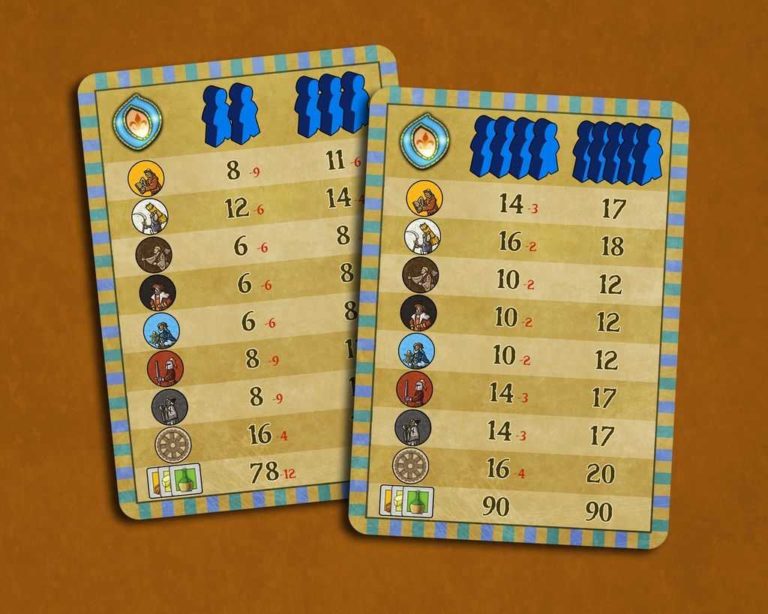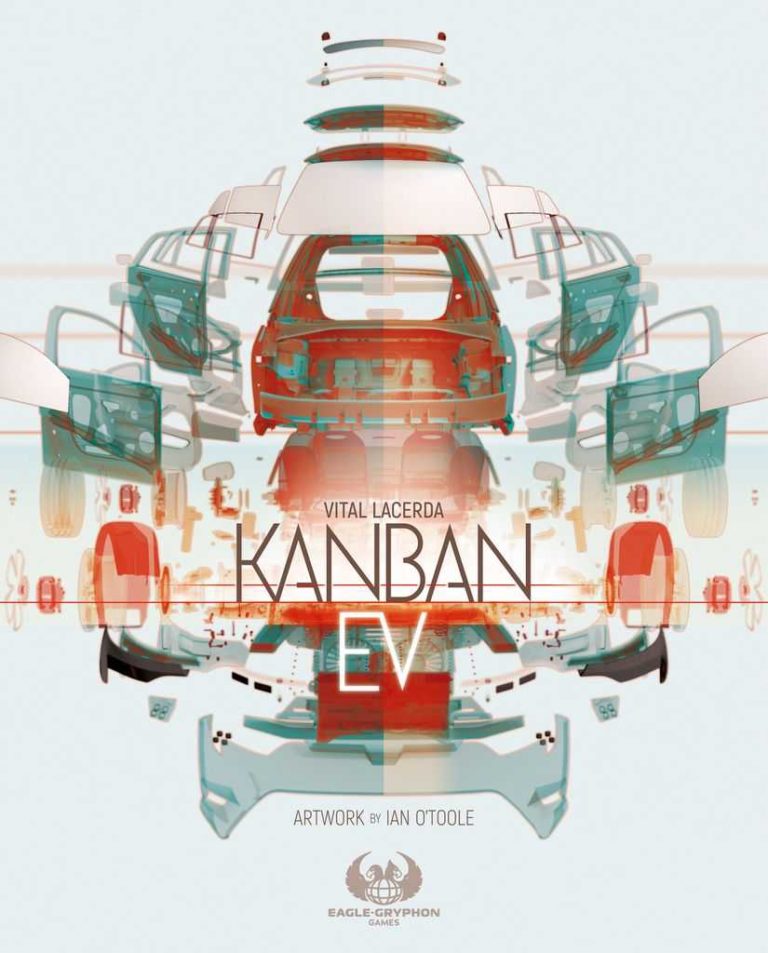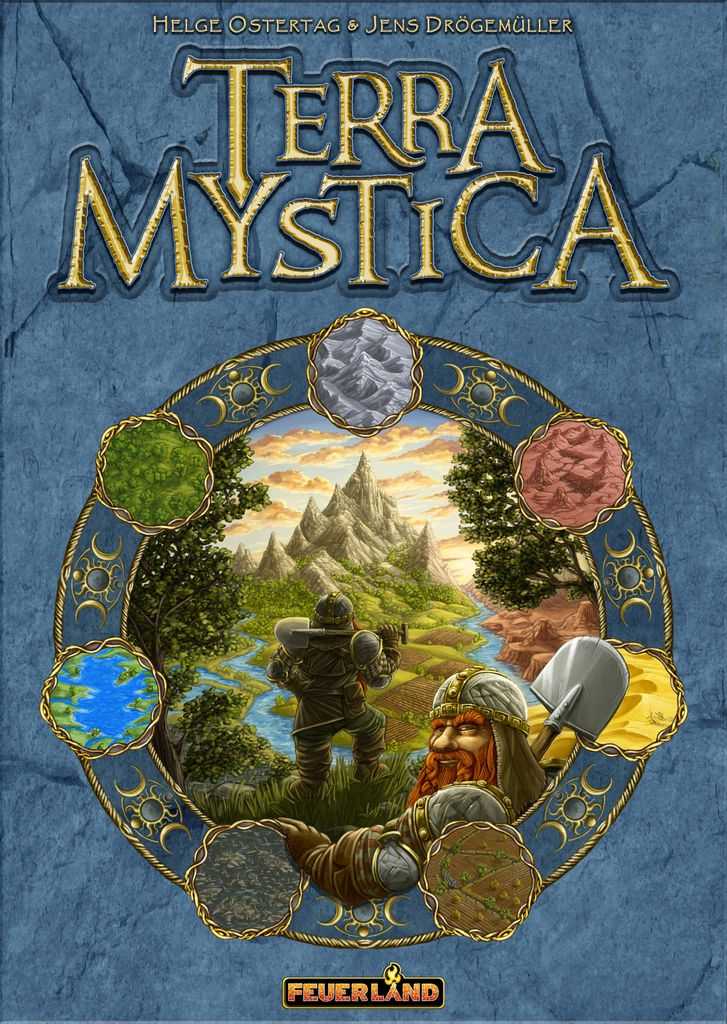Dune: Imperium Review – Unveiling The Game’s Strategy
Dune: Imperium Review – Unveiling The Game’s Strategy
Have you ever imagined yourself as the master of intrigue and strategy, battling for control over the most coveted resource in the universe? Dune: Imperium thrusts you into the heart of Frank Herbert’s legendary sci-fi saga, offering a tabletop experience that’s as vast and treacherous as the dunes of Arrakis itself. As someone with a deep-seated passion for board games, I’m thrilled to share my insights in this Dune: Imperium review.
Key Points:
- Dune: Imperium offers a tabletop experience set in the world of Frank Herbert’s Dune universe.
- The game combines deck-building and worker placement mechanics.
- Players represent factions vying for supremacy in the struggle for control over the spice melange on the planet Arrakis.
- The game’s mechanics and theme are intricately woven to create an immersive experience.
- The game is adaptable to different player counts, with strategies evolving accordingly.
- The Rise of Ix Expansion enhances the base game with new mechanics and technology.
- Dune: Imperium is a deeply strategic and engaging game, offering compelling narratives and diverse player dynamics.
Embarking on this game is like stepping onto a sandworm – thrilling, daunting, and utterly rewarding. Diverse strategies, dynamic gameplay, and engaging mechanics make each session a unique journey through the deserts of Dune. Whether I was gathering armies or maneuvering through the subtle art of diplomacy, there was always a captivating challenge ahead.
Deck-building and worker placement fuse seamlessly in Dune: Imperium, creating a tapestry of tough decisions and strategic depth. I remember sessions where turns felt like a game of cosmic chess, with players vying for victory points and an edge in the conflict phase. And while some might find the game length a touch long, or debate the balance of the deck, it’s the richness of choices that define the core of this enthralling experience.
Unraveling the World of Dune: Imperium
Entering the world of Dune: Imperium is akin to opening a book whose pages are saturated with intrigue, subterfuge, and the ever-present struggle for power. This game is not just a journey; it’s a multilayered adventure that unfolds through its intricate mechanics and compelling theme.
Setting the Scene: The Dune Universe
The Dune universe is a tapestry of political intrigue, ecological wonder, and spiritual depth. It revolves around the desert planet of Arrakis, the sole source of the spice melange. This invaluable resource is the cornerstone of the empire, granting longevity and prescient powers, making it the epicenter of conflict.
Each game in Dune: Imperium represents a slice of this struggle, with players representing different factions vying for supremacy. The immersive setting isn’t just a backdrop; it’s a driving force in the game, pushing me to align with the Fremen’s mastery of Arrakis or leverage the Spacing Guild’s control of interstellar travel – all in pursuit of ultimately ruling the known universe.
The Dune universe combines political intrigue, ecological wonder, and spiritual depth as players represent different factions vying for supremacy on the desert planet of Arrakis, driven by the invaluable resource of spice melange.
Core Mechanics: Deck-Building and Worker Placement
The heart of Dune: Imperium lies in its clever blend of deck-building and worker placement mechanics. Like the swirling sands of Dune, these elements blend together to shape the complex dunescape of the game. Deck-building is the vehicle through which players develop their abilities – each card added is a new tool or ally, refining strategies and opening paths to victory.
Worker placement is the game’s strategic battlefield. Here, characters are dispatched across Arrakis and the Landsraad to exert influence, gather resources or even conscript troops for battle. Much like Review 17 pointed out, although many mechanics are interwoven into the gameplay of Dune: Imperium, its iconography and streamlined ruleset make the learning process surprisingly intuitive. Each worker’s placement can ripple through the game, impacting alliances, rivalries, and opportunities, essentially making or breaking your empire’s future.
Delving into the Gameplay
The gameplay of Dune: Imperium is a complex, yet exhilarating journey through the desert. It encourages careful planning, adaptability, and sometimes a gamble on the unpredictable sands of Dune. With every move, the story of your rise to power unfolds, offering memorable moments and strategic dilemmas.
The Intricacies of Card Play
The churning sands of Dune: Imperium‘s card play can be both a boon and a nemesis. Every card drawn represents potential: a possibility to advance your position, sway the outcome of a conflict, or lay the groundwork for future maneuvers. Much like a gambit in a chess match, each card played can have far-reaching consequences, influencing not just the immediate turn but the overarching tide of the game.
It’s a fascinating dance, navigating the ebb and flow of your hand, judging when to play for the long-term gain or the immediate tactical advantage. As Review 23 highlights, the depth of decision space delivered through these cards is deceptively simple in its teaching, yet complex in its execution.
Strategic Worker Placement and Its Impact
Worker placement, in Dune: Imperium, is the fulcrum on which the game’s balance rests. Choosing where to place your agents is the cornerstone of your strategy – each location offers unique benefits and can also block your adversaries from gaining what they seek. It’s a strategic tussle, reminiscent of the power struggles described within the pages of Herbert’s novels.
The allocation of workers is akin to moving pieces across a grand political chessboard. Whether securing a stronghold on Arrakis to harvest spice or courting favor in the halls of the Landsraad for critical alliances, each decision carves a new line in the sand, redefining the power landscape. The impact of such decisions might not be apparent straightaway, looming silently like a sandstorm on the horizon, only to reveal their magnitude as the game progresses.
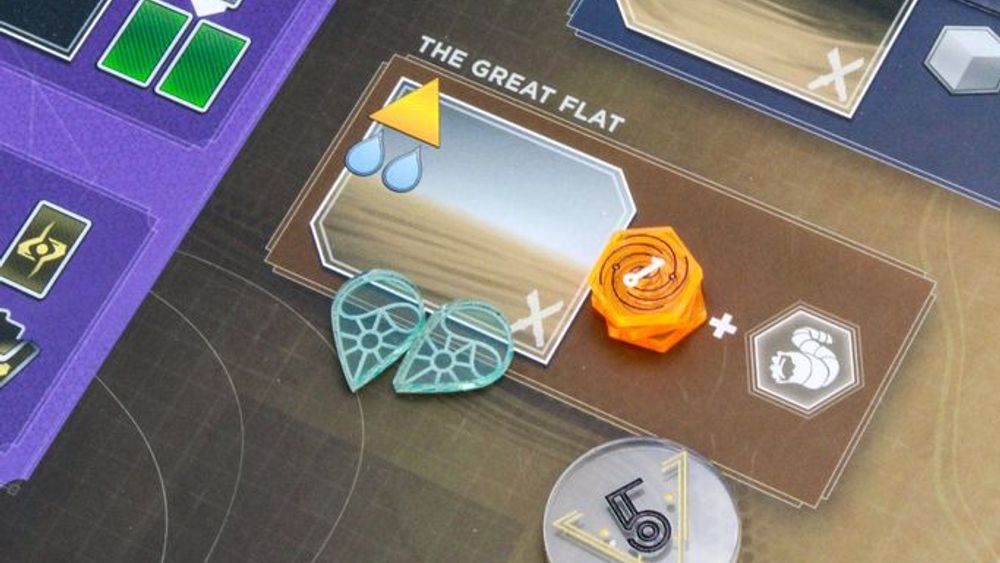
The Art of War in Dune: Imperium
In the universe of Dune, warfare is more than mere combat – it’s an extension of politics by other means. Dune: Imperium grasps this concept tightly, weaving conflict and military strategy into every aspect of its gameplay, where victory is as much a matter of cunning as it is of force.
Understanding Victory Points and Conflict
Within the shifting sands of Dune: Imperium, victory points represent your path to ruling the empire, and conflict is the crucible where many of these points are forged. It’s a battle not only of armies but also of wits and strategy. Throughout the game, I couldn’t help but count every victory point as a minor triumph, a step closer to dominance over Dune.
Balancing between conflict, building alliances, and resource management creates a delicate dance, where tipping too far in one direction can leave you vulnerable in another. Review 20 brings to light the essence of this delicate balance, mentioning the emphasis on strategic diversification and multiple victory paths mimicking the Dune universe’s political intricacies.
Victory points in Dune: Imperium represent the path to ruling the empire, emphasizing the delicate balance of conflict, strategy, and resource management.
The Role of Intrigue in Warfare
Intrigue is the silent dagger in the cloak of Dune: Imperium. It’s not just the battles fought openly but the secret maneuvers and unexpected alliances that often tip the scales. Intrigue cards open up a world of possibilities – a timely intervention here, a surprise twist there. They can be the unseen hand that guides the fall of empires, reflecting the complex interplay of powers in the Dune universe.
Yet, as mentioned in Review 43, these cards come with their balance curve. Intense tactics might secure immediate battlefield advantages, but it’s the strategic use of these cards that weaves the narrative of victory. Differing opinions reflect the diversity of player experiences, with some finding the randomness of the intrigue cards adding excitement, while others see it as an unpredictable element that muddies the water of a strategic masterpiece.
The Immersive Theme of Dune: Imperium
Imbued with the spirit of Frank Herbert’s universe, Dune: Imperium doesn’t just represent the Dune theme – it reenacts it. The game brings to life the cutthroat schemes and grandeur of a world where every decision could lead to unparalleled power or one’s downfall.
How Theme Enhances Player Experience
Dune: Imperium doesn’t just task players with conquering a universe of sand and spice; it thrusts them into a world steeped in lore, where each faction and mechanic reflects the complex narrative of Herbert’s creation. The theme is a veiled power that courses through every turn, enriching the game with meaning beyond mere mechanics.
From the legendary Fremen to the scheming Bene Gesserit, every element of the game weaves in threads from the original story, making the experience deeply personal. As a fan of the Dune universe, I reveled in the chance to tread the same sands as the storied characters, feeling every spice harvest and political maneuver resonate with the epic tale.
The Interplay between Narrative and Mechanics
The synergy between narrative and mechanics in Dune: Imperium is a dance of shadows, each step meticulously choreographed to the storied history of the Dune universe. Mechanically, the game allows you to explore the complex universe of Dune, while the narrative infuses each action with the gravitas of house intrigue and interstellar politics.
Every element of Dune: Imperium, from the tension-filled conflict phase to the cunning use of intrigue cards, embodies the themes of Dune’s political chess game. The seamless interplay between these aspects crafts a tale where actions speak louder than words and where victory is written not just in the stars – but in the sand itself.
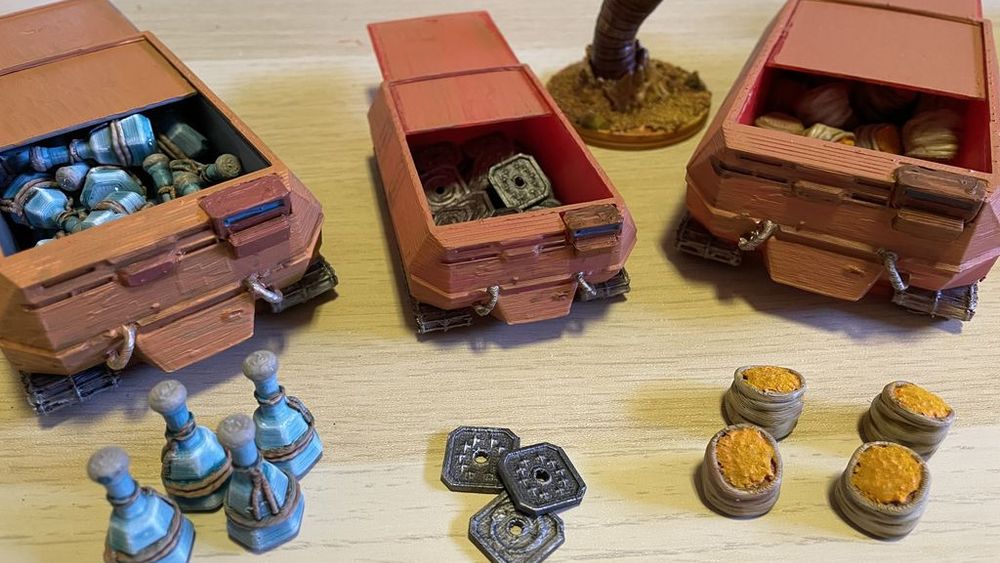
The synergy between narrative and mechanics in Dune: Imperium creates a seamless interplay that embodies the themes of Dune’s political chess game.
Player Dynamics and Game Flow
Board gaming is an intimate dance of strategy and interaction, and Dune: Imperium is akin to a grand ballet. I’ve noticed during play that dynamics shift subtly with each round. As the game advances, players slip into roles – some becoming deft negotiators, others shrewd tacticians – blurring the line between the Dune universe and our tabletop. The fluidity of each turn, with its tense decisions and tactical surprises, ensures that no two playthroughs are ever the same. It’s this ever-changing game flow that makes Dune: Imperium not just a game, but a narrative experience, replete with alliances formed and broken in the quest for supremacy on Arrakis.
The Swordmaster and The Mentat: Unique Roles
Diving deeper into Dune: Imperium, I’ve found that the roles of Swordmaster and Mentat add intriguing layers to gameplay. The Swordmaster, an elite warrior, is tied to combat might and daring plays that can flip the tide of battle. I remember a particular game night where employing the Swordmaster at just the right moment turned a sure defeat into an unexpected victory, leaving my friends both admiring and wary of my newfound boldness in conflict.
On the other hand, The Mentat emphasizes cerebral play. This role, crystallized by strategic thought and forethought, has helped me to plot a course to victory through seemingly complex webs of intrigue. I can’t help but smile when I recount how once, by deploying the Mentat to secure crucial intelligence, I orchestrated a decisive win amidst the whispered shock of my competitors.
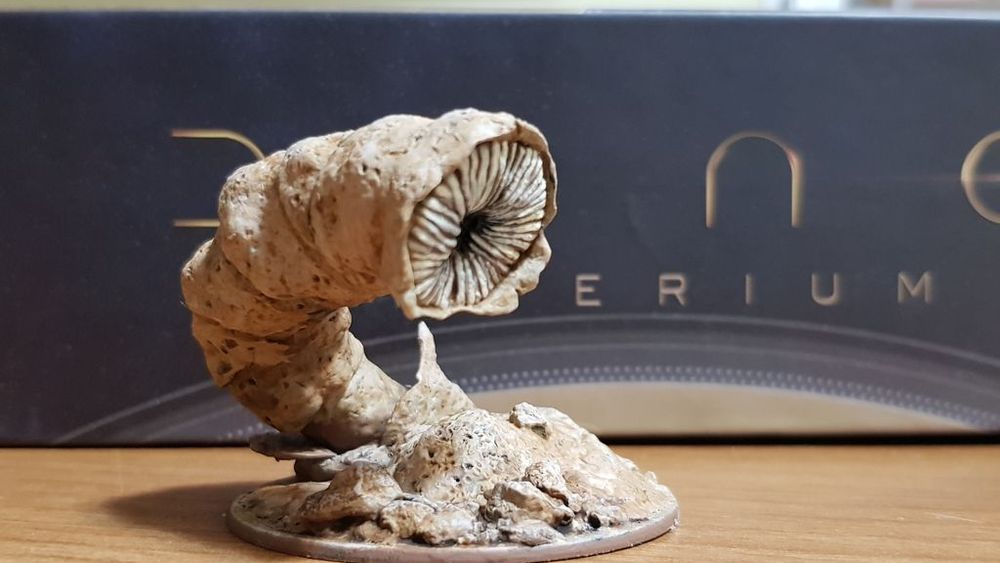
Adapting Strategies for Different Player Counts
Adaptability is key in Dune: Imperium, as strategies undulate with the ebb and flow of player counts.
- In a duel of minds with just two players, the game feels like a rapid chess match where every move is critical. You have to be brisk and bold, sometimes sacrificing short-term gains for the greater strategy.
- Threes a company welcomes complex alliances and bouts of treachery, where you can leverage the actions of others and steer clear of the direct line of fire.
- With four players, the game legitimately evolves into a battlefield strewn with clashing ambitions and serendipitous alliances. The strategy here is to stay vigilant and dynamic, as the battlefield morphs with each action.
In one memorable session, adapting to a full table meant embracing the chaos, allowing myself to pivot strategies mid-game and ultimately clinch victory from the grasp of a rival who had underestimated the adaptability their opponents.
Adaptability is crucial in Dune: Imperium, requiring players to be brisk and bold, making strategic sacrifices to stay ahead in the game.
A Critical Analysis of Components and Aesthetics
The tangible elements of board games are as crucial to the experience as the strategies and mechanics they embody, and Dune: Imperium is no exception. Presenting an array of components and visuals, the game must be scrutinized – as a board game enthusiast and hobbyist – on its ability to immerse players in its distinctive universe through its aesthetic and physical design.
Presentation: Visuals and Quality
From the moment you open the box, Dune: Imperium greets you with an ambiance that is undeniably Dune. The game’s visuals cleverly capture the stark beauty and intrigue of the desert planet Arrakis, enticing players to step into the boots of aspiring power brokers in the Dune universe.
The quality of the components reflects a high standard, too. Be it the weighty spice melange tokens or the distinctively carved player pieces, each component resonates with careful consideration. Remembering the tactile pleasure of holding the high-quality cards, I’m taken back to game nights filled with gripping tension and eager anticipation.
The game board itself is a tableau of iconography and color, simultaneously intuitive and representative. The player boards, with their distinct houses and factions, not only serve as a functional element of gameplay but also as a visual treat that celebrates the series’ rich lore.
The Immersion Factor: Does It Live Up to the Hype?
It’s paramount for a game with a storied background such as Dune to deliver an immersive experience. Amid the frenzied competition for dominance over Arrakis, one finds that the thematic elements of Dune: Imperium are expertly woven into each layer of the game.
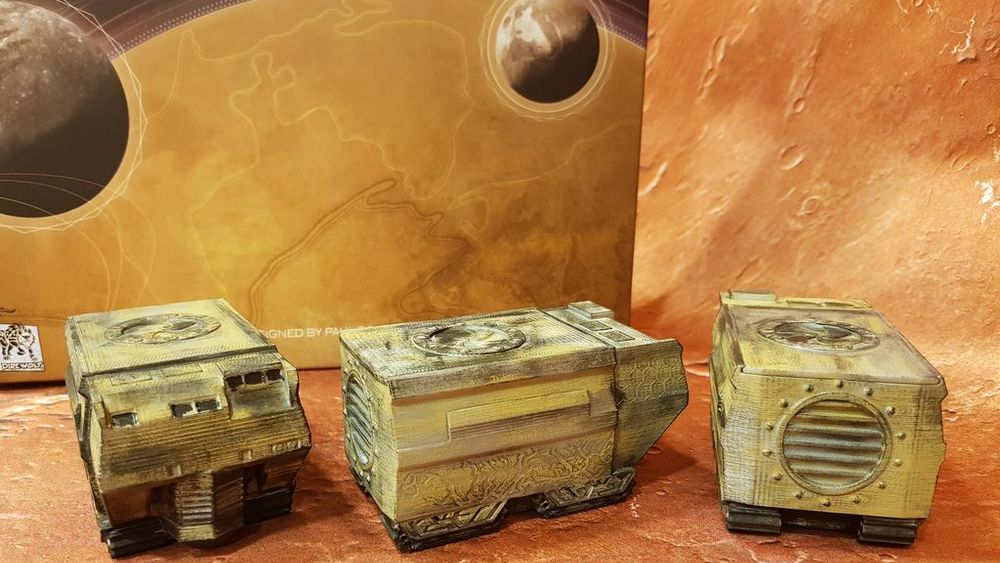
The rich narrative of the Dune universe is ever-present, echoed through engaging mechanics that reinforce the theme of political maneuvering and desert warfare. During one game, the feeling of desolation in the harsh desert was palpable, as players fought over the scarce but valuable spice melange, underscoring the theme of struggle and survival that is central to the Dune narrative.
FAQs
1. How does Dune: Imperium stand out from other deck-building games?
Dune: Imperium stands out from other deck-building games by integrating a complex blend of worker placement and combat mechanics. This melange of strategies, wrapped in the rich Dune lore, offers numerous victory paths and a deep level of player interaction, making for a distinct and strategic gaming experience.
2. Can Dune: Imperium be enjoyed by those unfamiliar with the Dune franchise?
Absolutely, Dune: Imperium can be enjoyed even if you’re unfamiliar with the Dune franchise. The game’s robust mechanics and engaging design ensure a compelling experience independent of any prior knowledge of the Dune universe. The thematic elements are an added bonus for enthusiasts but are not a barrier to enjoyment.
3. What is the optimal number of players for Dune: Imperium?
The optimal number of players for Dune: Imperium tends to be three. This count fosters a dynamic game environment while keeping interaction high and downtime to a minimum, ensuring a balanced and immersive experience.
4. How does the Rise of Ix Expansion enhance the base game?
The Rise of Ix Expansion enhances Dune: Imperium by introducing new mechanics, technology, and layers of strategy. It broadens the scope of the game and provides veterans with fresh challenges and novel ways to build their path to victory.
Conclusion
In this Dune: Imperium review, the sands of Arrakis have shifted beneath us revealing a game of subtle depth and complex beauty. Through intricate strategies and a palpable theme, it has carved out its space in the board gaming landscape. Dune: Imperium is not just a game; it’s a microcosm of power, manipulation, and the will to triumph.
Each playthrough is a tapestry of compelling narratives bound by the diverse strategies and player dynamics it so effortlessly fosters. Whether you’re commanding armies or pulling the strings in the shadows, your journey through Dune: Imperium promises a mesmerizing gaming experience.
Finally, reflecting on the many adventures had and friendships tested on the shifting dunes of this board game, I am convinced that Dune: Imperium earns its place among the titles that are both beloved and respected in our gaming circles.
Until we meet across the gaming table once more, keep the spirit of competition and camaraderie alive. May your strategies be cunning, and your decks be ever in your favor.
Lucas
More Boardgame Reviews:
This article uses material from BoardGameGeek and is licensed under the Creative Commons Attribution-Share Alike License.


